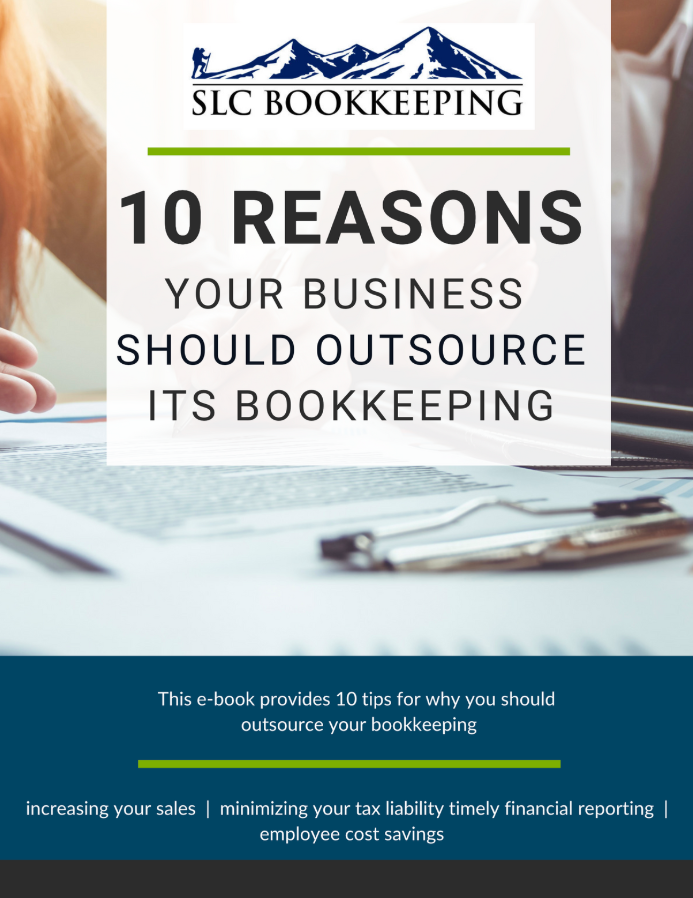Make Your Small Business Bookkeeping Work For You
 I meet a lot of business owners that have a small business bookkeeping system that just doesn't work. Quite often when we meet a business that is having bookkeeping issues their system has not been updated in quite some time and is full of errors. A lot of business owners hate bookkeeping and for good reasons; they have never had a bookkeeping system that adds value. Here is a quick guide on how to make your small business bookkeeping system work for you.
I meet a lot of business owners that have a small business bookkeeping system that just doesn't work. Quite often when we meet a business that is having bookkeeping issues their system has not been updated in quite some time and is full of errors. A lot of business owners hate bookkeeping and for good reasons; they have never had a bookkeeping system that adds value. Here is a quick guide on how to make your small business bookkeeping system work for you.
Fix Your Bookkeeping
The most painful part of developing a bookkeeping system that works is fixing the old system. Sometimes it is easier to just start your bookkeeping over, but that is not always an option. Whenever we are fixing a bookkeeping system there is a lot of finger pointing going on as to who created the problem. The fact is the bookkeeping system is messed up and placing blame will do nothing to fix it. Fixing a bookkeeping system is nothing more than a really detailed treasure hunt. Here is the deal; we need to know everything that is going on in the financial world of your business and we need the documentation to back it up. We need to put all of the following on your books: every bank account, credit card, loan, line of credit and every single funky little transaction you have ever done. Once the bookkeeping is fixed we can move on to developing a system.
Develop a Bookkeeping System
Developing a strong bookkeeping system is the part of the job that we enjoy the most. A bookkeeping system that actually works is the difference between a $15/hour data entry person and a financial consultant. Developing a good bookkeeping system that works is nothing more than communication between an owner or management team and the bookkeeping team.
How often do you need updates?
What reports are important for you to see and how often?
Is there any other information that would help you run your business and make business decisions?
It's really as easy as that. How much value would the above three questions add to your bookkeeping system? All we are doing is setting expectations and holding each other accountable. In the end a bookkeeping system should be a tool that a business owner can use to make key business decisions.
Update Your Bookkeeping
It may sound obvious but one of the most crucial steps in a good bookkeeping system is that it gets updated on a regular basis. Some clients only need updates once a month or once a quarter. However, other businesses need updates once a week or several times a week. If you are really going to use your bookkeeping system as a tool then I suggest updating your books at least once per week. The key to updating your bookkeeping system is once again communication with your bookkeeper. How often do you want bookkeeping updates done? If you need updates once a week is there a certain day of the week that you need updates done by? Setting a time on your calendar to update your bookkeeping or communicating your needs to your bookkeeper will ensure that your bookkeeping gets updated on a regular basis.
Analyze Your Bookkeeping Output
Nothing is more frustrating than developing a dialed bookkeeping system only to have the business owner never look at it. If you are only using your bookkeeping to file taxes then you really don't need to update your bookkeeping all that often. If you want to use your bookkeeping system as a tool to make decisions then you need to look at the output of your bookkeeping system every now and again. It is important to analyze your small business financial reporting often so that you can keep your business on track. If you are not looking at your financial reports on a regular basis you are literally running your business blind.
A lot of small business owners don't like bookkeeping for one reason or another. Most of the time it's because they really don't get any useful information from their small business bookkeeping. However, just a little communication on expectations and desires can really help put a solid bookkeeping system in place.
Are you unhappy with your current bookkeeping system? What frustrations are you having?
Photo Credit © Dollar Photo Club / Sandra van der Steen


Comments